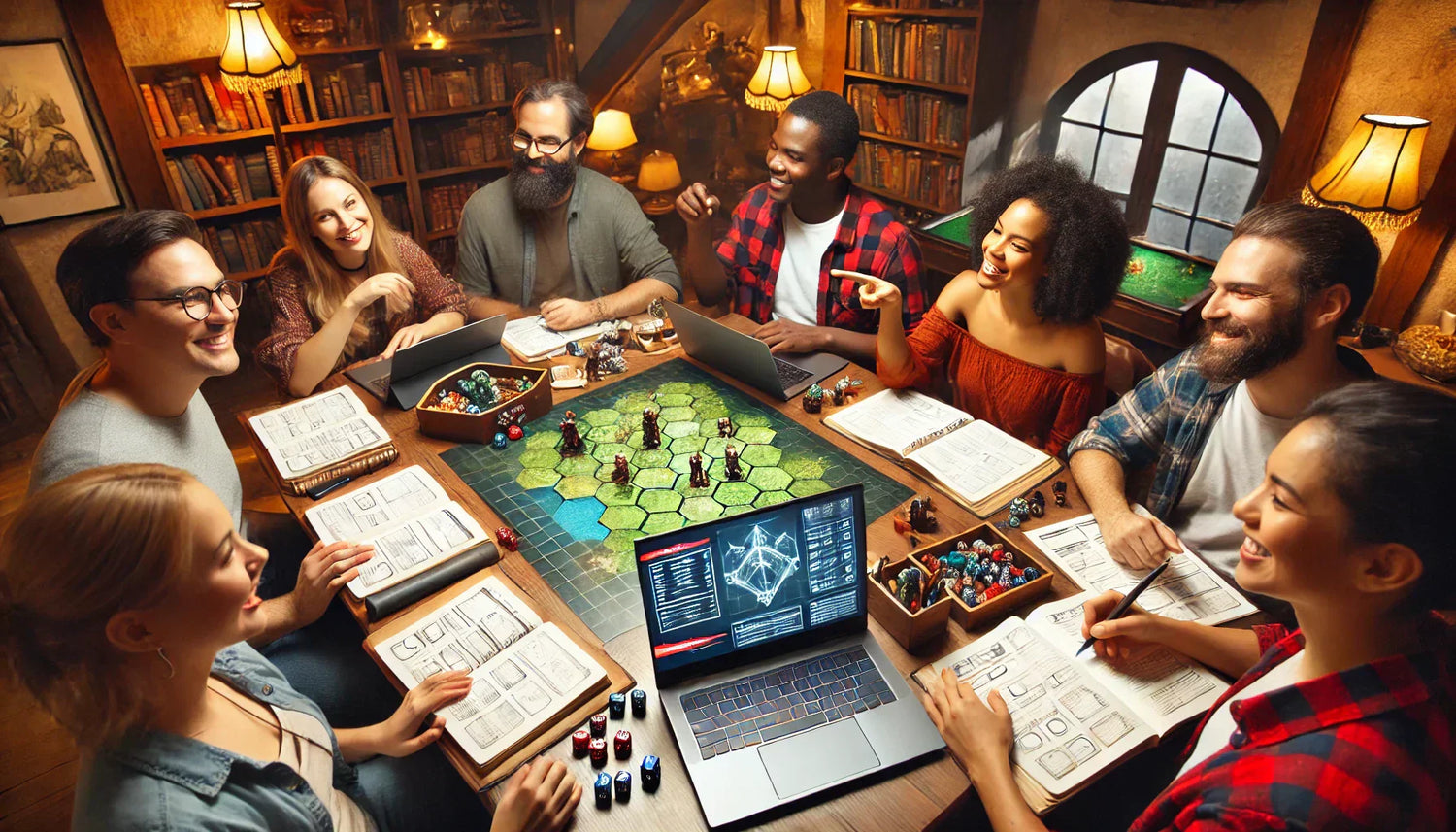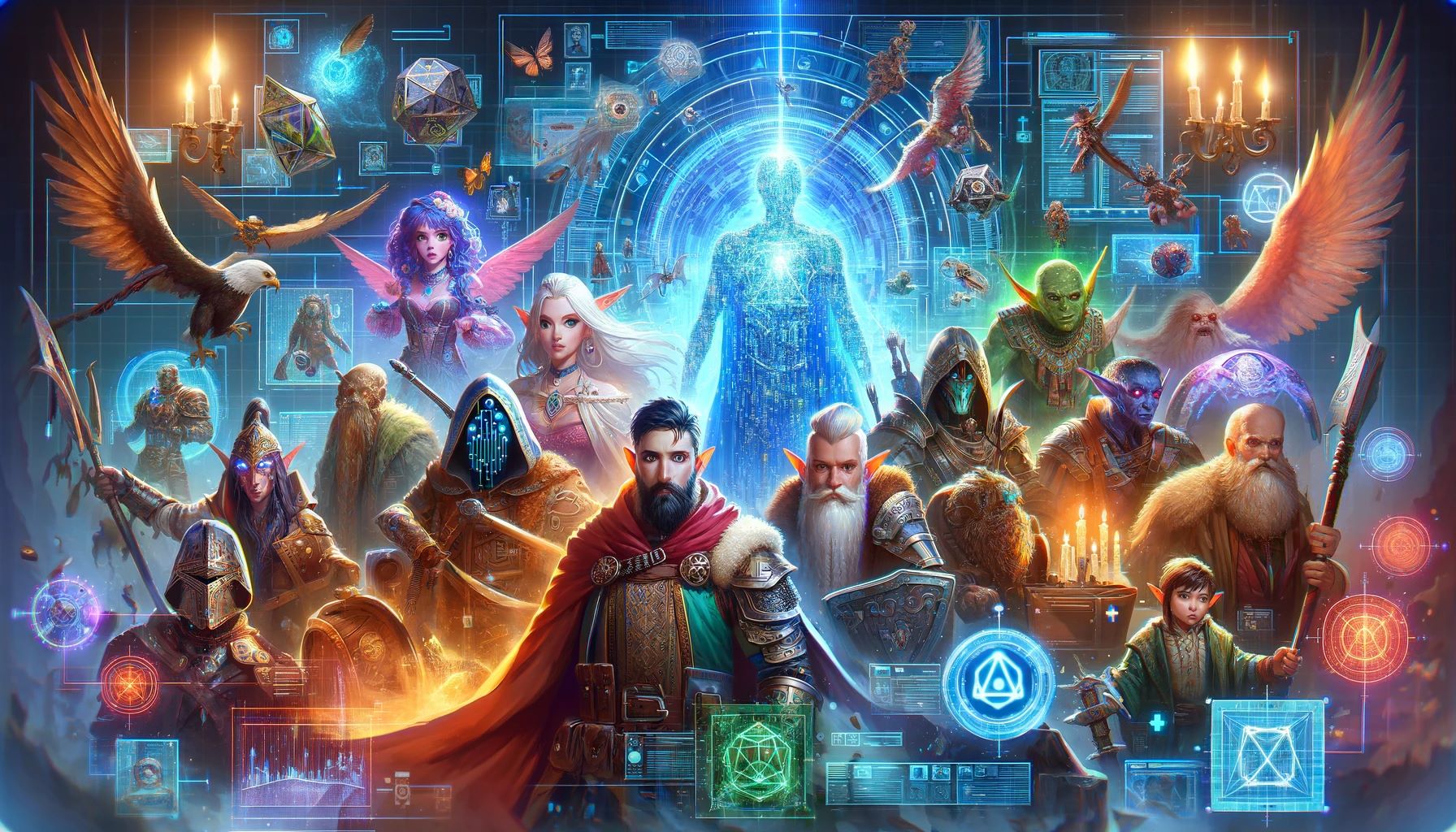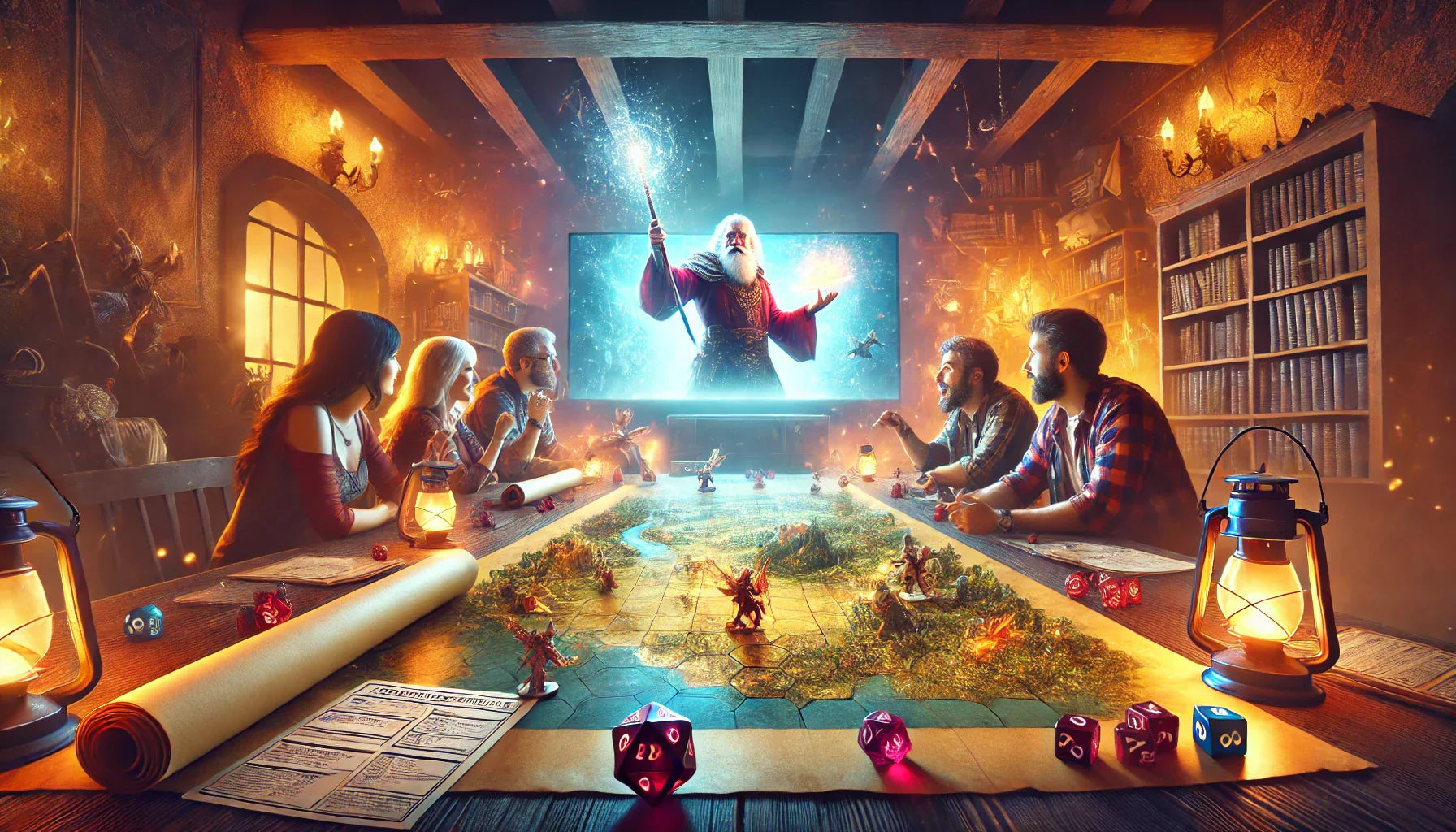Introduction
Dungeons & Dragons (D&D), a beloved tabletop role-playing game, has undergone a significant transformation since its inception in the 1970s. With the advent of digital technology, the game has evolved, enabling players to explore their imagination in new and exciting ways. Today, integrating technology into D&D gameplay is not just a trend—it's a necessity for many players seeking to enhance their experience.
Digital resources for tabletop gaming provide a wealth of tools and applications that streamline gameplay, making it easier to manage characters, campaigns, and interactions. This guide focuses on how to leverage apps and software solutions to elevate your D&D sessions, whether you're playing in person or virtually.
The Rise of Digital Resources for Tabletop Gaming
Overview of Digital Resources
Digital resources have become a cornerstone for modern tabletop gaming, offering a variety of tools and platforms that cater to different aspects of gameplay. These resources include:
- Virtual tabletop (VTT) platforms: Tools that allow players to interact in a digital environment.
- Character management apps: Software for tracking character stats, inventory, and progress.
- Campaign management tools: Applications designed to help Dungeon Masters (DMs) organize their campaigns more efficiently.
The growing popularity of these digital tools is evident, with platforms like Roll20 and Foundry gaining traction among D&D enthusiasts.
Benefits of Using Apps for D&D
Incorporating apps into your D&D sessions can significantly enhance the gameplay experience. Here are some key benefits:
- Automation and Ease of Access: Apps can automate mundane tasks, such as rolling dice or keeping track of combat turns, allowing players to focus on storytelling and character development.
- Streamlined Character Management: Character management apps simplify the process of updating stats, tracking inventory, and managing spells, making it easier for players to immerse themselves in their roles.
- Campaign Organization: DMs can use campaign management tools to keep track of story arcs, encounters, and player progress, ensuring a smoother gaming experience.
Choosing the Right Tools
When selecting apps and software for D&D, consider the following criteria:
-
User Interface: Look for intuitive designs that enhance user experience.
-
Compatibility: Ensure the app is compatible with your gaming style, whether it’s in-person or remote.
- Community Support: A strong user community can provide valuable resources and troubleshooting help.
Some recommended apps that cater to various gameplay needs include:
-
D&D Beyond: Great for character creation and rule referencing.
-
Roll20: An excellent virtual tabletop platform.
- Fantasy Grounds: A feature-rich VTT with extensive support for various RPG systems.
Enhancing Gameplay with Technology
Virtual Tabletop Tools
Virtual tabletop tools are essential for remote D&D sessions, providing a digital space for players to interact. Key features of popular VTT platforms include:
-
Interactive Maps: Create or import maps that players can explore.
-
Character Sheets: Digital sheets that allow players to manage their characters easily.
- Integrated Audio/Visual Effects: Enhance immersion through background music or sound effects.
Integrating Interactive Maps and Assets
Utilizing digital maps can significantly enhance gameplay by providing players with a visual representation of their adventures. Here are some resources for finding and creating assets:
-
Dungeon Fog: Create detailed maps with ease.
-
Inkarnate: Design beautiful fantasy maps for your campaigns.
- Roll20 Marketplace: Purchase pre-made maps and assets.
Online D&D Sessions: Best Practices
Running effective online D&D sessions requires careful planning and communication:
-
Use Reliable Communication Tools: Platforms like Discord or Zoom are excellent for video conferencing.
-
Establish a Schedule: Consistency helps players stay engaged and committed.
- Encourage Player Interaction: Use polls or chat features to foster engagement.
Technology for Remote Gaming
Setting Up a Remote Game
Preparing for remote D&D sessions involves several steps:
-
Select Your Platform: Choose a virtual tabletop that suits your group’s needs.
-
Gather Necessary Equipment: Ensure all players have access to webcams, microphones, and a stable internet connection.
- Test Your Setup: Conduct a trial run to address any technical issues beforehand.
Building a Community Online
Connecting with other players online can enrich your D&D experience. Here are some ways to find fellow adventurers:
-
Social Media Groups: Platforms like Facebook and Reddit have dedicated groups for D&D players.
-
Online Forums: Websites like D&D Beyond and Roll20 offer forums for players to connect.
- Discord Servers: Join servers specifically designed for D&D gaming.
Overcoming Challenges of Remote Play
While remote gaming offers flexibility, it also presents unique challenges:
-
Technical Issues: Prepare for potential internet disruptions by having backup plans, such as using mobile data.
-
Engagement: Keep players involved by using visual aids and encouraging active participation.
- Time Zone Differences: Coordinate with players across different time zones to find suitable session times.
D&D Software Solutions
Character Creation and Management Apps
Character creation and management apps simplify the process of developing and tracking characters. Some notable software solutions include:
Hero Forge: Create custom miniatures for your characters.
D&D Beyond: Offers a comprehensive character builder that integrates seamlessly with the game.
Campaign Management Tools
Campaign management is crucial for DMs to maintain organized and engaging sessions. Recommended software includes:
-
Obsidian Portal: A platform designed for DMs to organize and share campaign details.
- World Anvil: A world-building tool that helps DMs create and manage their game worlds.
Analyzing Gameplay Data with Technology
Technology allows for the analysis of gameplay data, helping to improve future sessions. Tools that provide statistics and insights include:
-
Tabletop Simulator: Offers analytics on player engagement and session outcomes.
- D&D Beyond: Tracks character progression and game statistics.
Conclusion
Integrating technology into D&D gameplay offers numerous benefits, from enhancing player engagement to streamlining character and campaign management. The future of D&D is undeniably intertwined with digital resources, and exploring various apps and tools can elevate your gaming experience to new heights.
As you embark on your journey, consider experimenting with different virtual tabletop platforms, character management apps, and campaign tools. Embrace the tech-savvy world of Dungeons & Dragons, and prepare for countless adventures ahead!
Dive into the world of digital resources for tabletop gaming and discover how technology can transform your D&D sessions. Whether you're a seasoned player or a newcomer, there's a wealth of tools waiting for you to explore!



